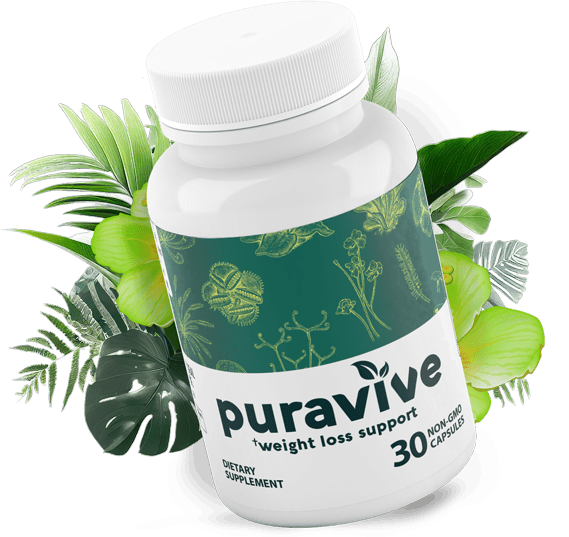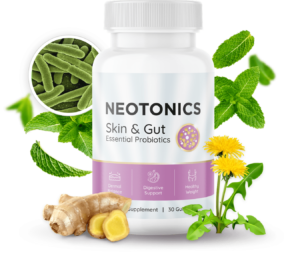In the quest for achieving a healthy weight, many individuals turn to weight loss supplements to aid them in their journey. One such product that has gained attention in recent times is Puravive. In this review, we will delve into the details of Puravive and explore the effects of its key ingredients, including luteolin, kudzu, holy basil, white Korean ginseng, amur cork bark, propolis, quercetin, and oleuropein. Additionally, we will assess the pros and cons of this popular weight loss supplement.
The Power of Puravive’s Ingredients
Puravive harnesses the potential of several natural ingredients known for their weight loss properties. Let’s take a closer look at each of these ingredients and their effects:
1. Luteolin (Compound)
Luteolin, a flavonoid found in various plants, has been shown to have anti-inflammatory and antioxidant effects. It may help in reducing obesity-related inflammation and improving metabolic function, thereby supporting weight loss.

- What it is: A flavonoid found in fruits, vegetables, and herbs like celery, green peppers, and chamomile.
- Weight loss potential:
- Anti-inflammatory properties may reduce inflammation linked to obesity.
- Might help regulate blood sugar levels, potentially helping with cravings.
- Some studies suggest it could reduce fat cell formation.
- Research: More research, particularly in humans, is needed to substantiate weight loss claims.
2. Kudzu
Kudzu, a vine native to Asia, contains compounds that have been traditionally used for their potential weight loss benefits. It may aid in reducing appetite and cravings, promoting a feeling of fullness, and supporting healthy blood sugar levels.

- What it is: A climbing vine plant native to Asia, used in traditional medicine.
- Weight loss potential:
- Contains isoflavones that might influence appetite and metabolism.
- Could support healthy blood sugar management.
- May reduce alcohol cravings, indirectly aiding weight loss efforts.
- Research: Studies on kudzu and weight loss are limited, mostly animal-based.
3. Holy Basil
Holy Basil, also known as Tulsi, is a herb revered for its medicinal properties. It has been suggested to have anti-obesity effects by regulating lipid metabolism, reducing oxidative stress, and improving insulin sensitivity.

- What it is: An adaptogenic herb used in Ayurvedic medicine.
- Weight loss potential:
- Helps manage stress levels, which can contribute to overeating.
- May improve insulin sensitivity, aiding in blood sugar control.
- Potential anti-inflammatory effects.
- Research: Some studies support the use of holy basil for stress reduction and metabolic regulation, but its direct impact on weight loss requires more investigation.
4. White Korean Ginseng
White Korean Ginseng, derived from the root of the Panax ginseng plant, has been used for centuries in traditional medicine. It may help in boosting metabolism, increasing energy levels, and enhancing physical performance, thereby aiding in weight loss efforts.

- What it is: A variety of ginseng, a root long used in traditional medicine.
- Weight loss potential:
- May promote healthy gut bacteria, important for metabolism.
- Could regulate fat metabolism and reduce fat storage.
- Potentially boosts energy levels which could facilitate exercise.
- Research: Some evidence suggests ginseng may assist in weight management, but long-term human studies are necessary.
5. Amur Cork Bark
Amur Cork Bark, extracted from the bark of the Phellodendron amurense tree, has been studied for its potential anti-obesity effects. It may assist in reducing body weight, fat mass, and cholesterol levels, while also improving insulin resistance.

- What it is: Bark from a tree native to East Asia with a history in traditional medicine.
- Weight loss potential:
- May help manage stress and reduce cortisol levels, a hormone linked to fat storage.
- Can help with bloating and digestive issues, promoting comfort.
- Research: Lacks specific studies on weight loss, though its stress-reducing effects could indirectly help weight management efforts.
6. Propolis
Propolis, a resinous substance collected by bees from tree buds, has been recognized for its various health benefits. It may aid in weight loss by reducing inflammation, improving gut health, and enhancing metabolic function.

- What it is: A resin-like substance produced by bees to seal their hives.
- Weight loss potential:
- Contains antioxidants that may support overall health.
- Could modulate gut bacteria, influencing metabolism.
- Research: Research is limited, mainly focusing on propolis’s other health benefits, not directly on weight loss.
7. Quercetin (Compound)
Quercetin, a flavonoid found in fruits and vegetables, has been associated with numerous health benefits. It may contribute to weight loss by increasing fat oxidation, reducing inflammation, and improving exercise performance.

- What it is: A flavonoid found in fruits and vegetables like onions, apples, and berries.
- Weight loss potential:
- Anti-inflammatory and antioxidant properties can support overall health.
- May impact fat metabolism and fat cell creation.
- Research: Some studies suggest potential weight loss effects, but larger human trials are needed.
8. Oleuropein
Oleuropein, a compound found in olive leaves, has been studied for its potential anti-obesity effects. It may help in reducing body weight, fat accumulation, and cholesterol levels, while also promoting healthy blood sugar control.

- What it is: A key compound found in olives and olive leaves.
- Weight loss potential:
- May increase thermogenesis (calorie burning).
- Could lower blood sugar levels and potentially decrease cravings.
- Research: Studies indicate promising weight management effects, but further research in humans is required.
The Pros and Cons of Puravive
Like any weight loss supplement, Puravive has its advantages and disadvantages. It is essential to consider these factors before incorporating it into your weight loss regimen:
Pros:
- Puravive utilizes natural ingredients that are known for their potential weight loss benefits.
- The supplement may help in reducing inflammation, boosting metabolism, and improving insulin sensitivity.
- Puravive may aid in appetite control, reducing cravings, and promoting a feeling of fullness.
- It has the potential to enhance energy levels, physical performance, and fat oxidation.
- The inclusion of antioxidant-rich ingredients in Puravive may have additional health benefits.
Cons:
- Individual results may vary, and the effectiveness of Puravive may depend on factors such as diet and exercise.
- Puravive should not be considered as a sole solution for weight loss and should be used in conjunction with a healthy lifestyle.
- Some users may experience mild side effects such as digestive discomfort or allergic reactions to certain ingredients.
- Puravive may not be suitable for individuals with specific medical conditions or those taking certain medications.
- The long-term effects and safety of using Puravive for weight loss require further research.
It is important to consult with a healthcare professional before starting any new weight loss supplement, including Puravive, to ensure it is suitable for your individual needs and to address any potential concerns or interactions.
Users Review
Conclusion
Puravive offers a blend of natural ingredients that have shown promise in supporting weight loss efforts. With its combination of luteolin, kudzu, holy basil, white Korean ginseng, amur cork bark, propolis, quercetin, and oleuropein, this supplement aims to provide multiple benefits, from reducing inflammation and improving metabolism to controlling appetite and enhancing energy levels.
However, it is crucial to approach weight loss supplements with realistic expectations and to remember that they are not a substitute for a healthy diet and regular exercise. While Puravive may offer potential benefits, it is essential to consult with a healthcare professional before incorporating it into your weight loss journey.
Ultimately, finding the right approach to weight loss involves a holistic approach that includes a balanced diet, regular physical activity, and making sustainable lifestyle changes. Remember, your health and well-being are worth investing in for the long term.



